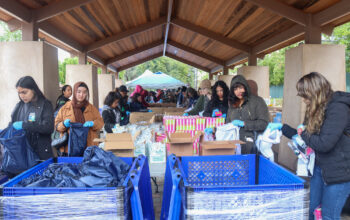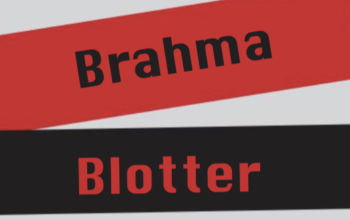Telescope night will provide the opportunity to view Jupiter, the moon, birthplaces of stars, binary stars and a galaxy or two on Thursday, May 12 from 8 p.m. to 10:30 p.m. on the second floor patio of the Center for Science.
“This is a chance for anyone to go outside and look through a telescope,” said Department Chair of Physics and Planetary Sciences Dale Fields. “Everyone should get a chance to look through a telescope.”
Fields said as time progresses into the event, you will be able to see more bodies in space.
“We’ll get a chance to look at Jupiter and Mars and maybe Saturn if people stay late enough,” Fields said.
According to Fields, the last time they had a telescope viewing night was over a year ago. Weather conditions have caused Fields to cancel viewings in the past.
“The last three times that I’ve attempted to do a Telescope Night, those three weeks that I have tried to do them have had six days of clear skies and one day of rain,” Fields said.
Fields said Physics & Planetary Sciences Adjunct professor, Carolyn Mallory, said the moon’s light and cloudiness affects what you can see through a telescope.
“I like giving them [students] the opportunity to experience plant’s and galaxies,” Mallory said.
Fields first became interested in astronomy when he looked into his dad’s telescope at age 7 and has been passionate about it since. He enjoys sharing his knowledge with students who are interested in astronomy.
“It’s the biggest science of all possible sciences,” Fields said. “If you want to know more about everything, then you pick astronomy.”
All are welcome to Telescope Night and sometimes various groups come by such as scout troops and elementary schools, according to Fields.
“Actually an astronomy class is going to be there, so we’ll set up some [telescopes] for both groups and makes sure that everyone get’s a chance to use them,” Fields said.
Although there are only 8 main telescopes and 4 other specialty telescopes as well as solar telescopes, Fields wants to make sure everyone gets a chance to look through them and experiences everything the same.
Fields is typically not around much during summer but tries to plan events in the beginning of every spring and fall semester.
“We always try to have two planetary shows and two viewing nights,” Fields said.
All ages can take what they learn and be inspired by how vast the universe is and how they shouldn’t stress over the simple things.
“Part of it gives you a sense of where we are in this universe, how we fit into everything,” Fields said. “When you realize our sun is a star and you look through a telescope and see a fuzzy patch of light that has millions of stars spread throughout, it could be a great perspective lift.”
There is no official astronomy club on campus, but Fields encourages students who are interested in joining to check out their facebook page where they post events such as Telescope night.
“Seeing is believing and you can actually know this stuff is happening and get a sense of where we came from and where we’re going,” Fields said. “Also find where we are not only in space, but in time.”



